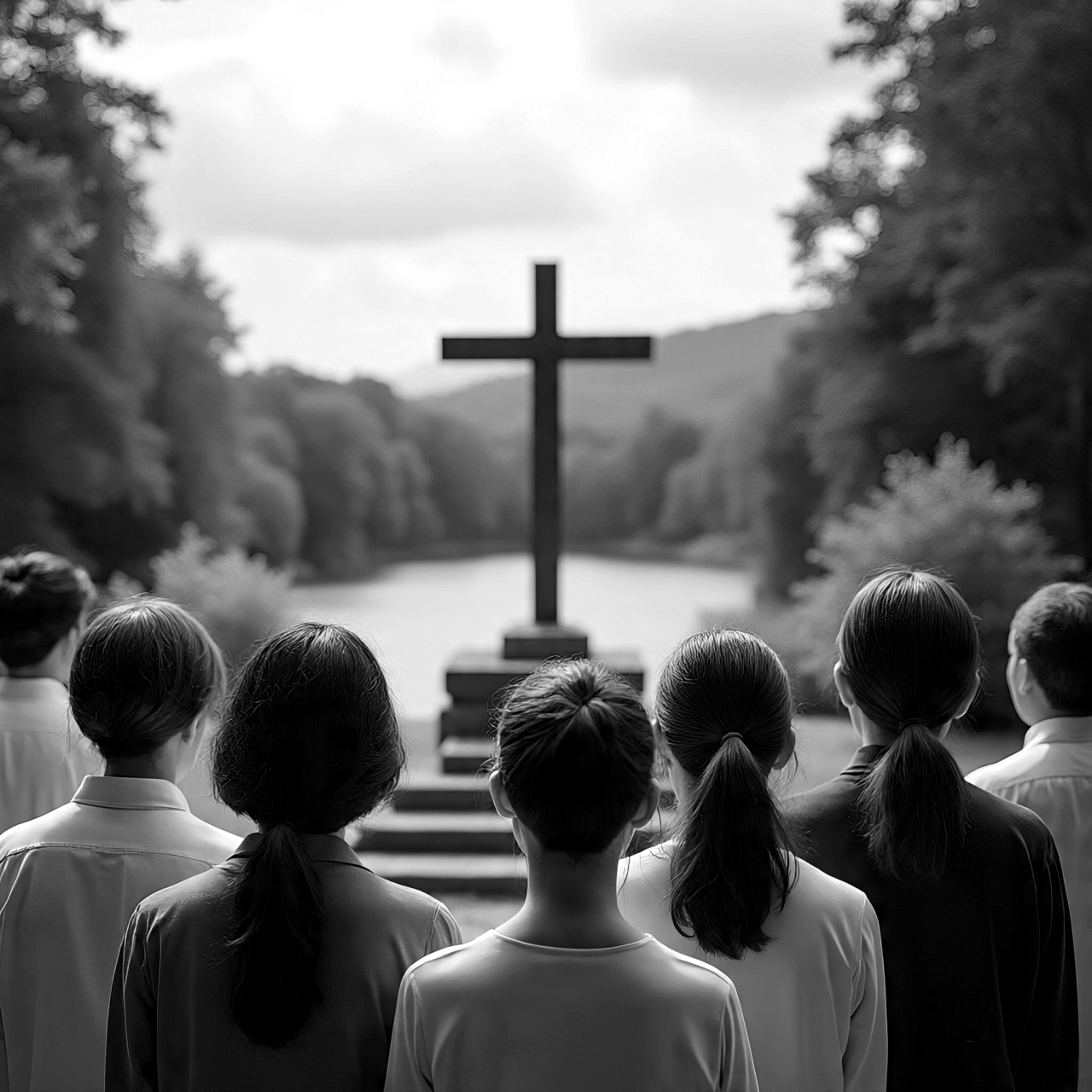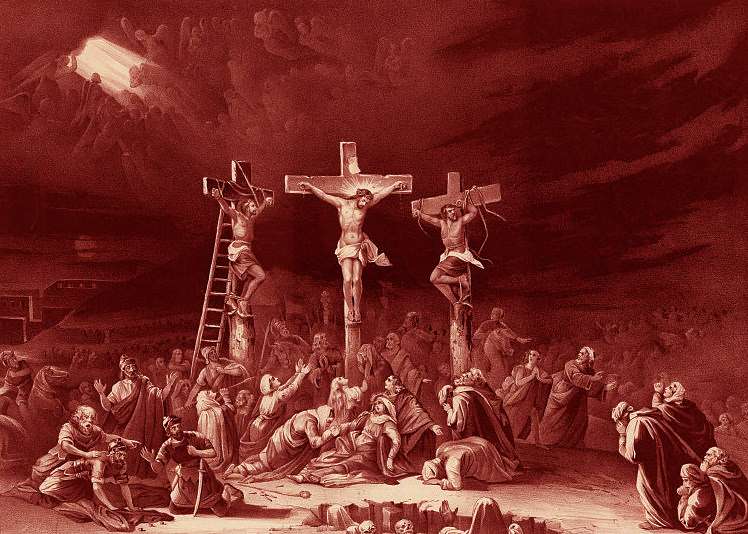

Worship in Spirit and Truth
Dr. C. T. Luiskutty
Worship is a genuine need for all human beings. Usually some entity that demands their fear or adoration becomes the object of their worship. Some people have a place in their home which is designated a worship room or they go to a ‘holy place’ where like-minded people assemble to worship their god. Christians also engage in corporate worship. But because of the Covid-19 pandemic assembling together is prohibited or restricted. This creates a great problem for many believers. However, corporate worship is only a part -- I may say, a minor part -- of Christian worship even though we see great significance of this in Israel’s history. True worship is personal and an expression of our relationship with the Almighty God.
The words used for worship in Biblical languages are ‘shachah’ (Hebrew) and ‘proskuneo’ (Greek). The first use of the Hebrew word is seen in Genesis 22:5, where Abraham told his servants to remain with their animals of burden at a distance from the mountain where he would go with his son Isaac and worship (that is, to bow down or fall prostrate before) the Lord. (The word translated worship in Genesis 4:26 in some versions of the Bible is different and could be translated ‘call upon’; One version (ISV) even renders its meaning as ‘profaning.’) Here we see that Abraham was on the mountain alone with his son of promise who was going to be offered as a sacrifice. No associates, servants or animals, no paraphernalia to make the worship more acceptable to God or more palatable to the worshipper’s senses . There was nobody to prod him to do an act he was reluctant to perform. A scene of true worship!
Another scene of true worship is in the Holy of holies in the tabernacle or the temple. There the high priest who earlier underwent the ceremonial cleansing according to the Law stood alone before God. The unquenchable thirst of a worshipper coming to the Most Holy Place is reflected in the lyrics of Dave Browning’s song,
Take me past the outer courts
Into the Holy Place
Past the brazen altar
Lord, I want to see Your face
Take me past the crowds of people
The priests who sing your praise
I hunger and thirst for Your righteousness
And it's only found one place
Chorus :
Take me into the Holy of Holies
Take me in by the blood of the Lamb
Take me into the Holy of Holies
Take the coal, cleanse my lips, here I am
Also, Isaiah, who was not a high priest had a similar experience when he had a vision of God in His extreme holiness. At the magnificence of this majestic vision he yearned for complete sanctification and surrendered for absolute service. Such a devotion is an integral component of true worship.
In the Gospel of John Chapter 4 we read the story of Jesus having a lengthy conversation with a Samaritan woman at the well of Sychar. Her primary concern was meeting her immediate need of getting water without walking all the way to the well and she brought this up in her conversation with the stranger. But as soon as she discovered that she was talking to a prophet, she changed the topic of discussion to worship - specifically about the place of worship. The Greek word means, ‘kiss the hand as a token of reverence’ or to ‘fall upon the knees and touch the ground with forehead’. Either way it is an expression of submission and profound reverence. As her emphasis was on the place of worship, Jesus drew her attention to the nature of the object of worship and the attitude and disposition of the worshipper. Jesus said, “God is Spirit, and those who worship him must worship in spirit and truth.” A true worshipper should pay attention to the following truths:
The object of our worship is God. Sometimes we get carried away by many other things, such as our tradition or the beauty and magnificence of the place of worship, the music and other accompaniment that creates an atmosphere of worship, the women and men that lead the worship service or the people in whose company we are worshipping. Our focus should be on God and Him only.
The God we worship is a person, at the same time a Spirit. In other words, He is not confined in a body or limited to a place. Thus it is immaterial whether the site of worship is a mountain in Samaria or a temple in Jerusalem. As (a) Spirit He can be present anywhere and everywhere. By faith the worshipper experiences His presence.
The attitude of the worshipper is of paramount importance. Jesus said, “Those who worship God must worship Him in spirit and truth.”
Worship in spirit. Some people interpret this to say that we must worship in the Holy Spirit. The Holy Spirit is present in the believers and assists them in all their activities. He helps them in their weakness, intercedes for them with groans that cannot be uttered and in accordance with God’s will (Romans 8:26,27). He enables them to “sing and make music in their heart to the Lord” (Ephesians 5:19). These are all part of the worship of Spirit-filled Christians. The Holy Spirit has an important role in our worship. It cannot be denied that the baptism in the Holy Spirit provides an added dimension to the worship of a believer.
However, in most translations of John 4:24, small letter ‘s’ is used to indicate spirit; therefore most interpreters conclude that this refers to the human spirit rather than the Spirit of God. As mentioned above, the Holy Spirit has a significant role in our worship. At the same time in order to make the worship acceptable to God the human spirit must be completely involved in it.
In Apostle Paul’s language, we were dead at one time. It is evident that he is not referring to our body or mind because those faculties were alive. But we were not able to comprehend spiritual truths because they must be communicated by the Holy Spirit and our spirit is the faculty that receives the things of the Spirit (See 1 Corinthians 2:9-12).When a person is in Christ, they become a new creation. The body will not become new until the Second Coming of the Lord; the mind (or soul) undergoes a continuous process of transformation. But the spirit is transformed at the moment of regeneration and the person becomes a new creation in Christ. Our spirit which has been dead or inactive until then becomes alive all on a sudden and is able to communicate with the Spirit of God (Ephesians 2:1-5; Romans 8:16).
Worship in truth. In a world filled with hypocrisy and deceit, even worship does not seem to be authentic. People do many things to impress others. About the religious leaders of His time Jesus said, “Everything they do is done for men to see” (Matthew 23:5). They did many things in the name of God and worship, but their real intent was to draw attention to themselves and thus be admired rather than honoring God. The Samaritan woman was concerned about the location where people should assemble to worship. Jesus emphasizes the need of truth in worship. In other words He is not concerned about the location, mode, duration or rituals of worship. He demands truth -- authenticity and sincerity in worship.
Do we promote this attitude in our private worship as well as corporate worship? It is essential that the New Testament believers and church should give more attention to the attitude of worship than the style or rituals of our activities in a worship service. We do not deny the importance of the Old Testament in the church today. It should be given proper place, but the Jewish practices should not be at the expense of the teachings of Jesus Christ. We already looked at the attitude of worship in the story of Abraham, the high priest in the Holy of holies and Isaiah before the exalted God. But these were exceptions, not the norm of the worship among Jewish people. Even though they were a chosen people, the Jews, in general, did not maintain a close relationship with God. To meet the requirements of the Law they assembled at prescribed times in prescribed places. They had to be coerced to praise God for who He is and thank Him for the benefits they received from Him. This external pressure is reflected in many Psalms. Also such assemblies were venues for celebration as a nation and opportunities for the proclamation of their national identity and pride. For us things are different. We are God’s children and we rejoice in it. We need not be coerced to be thankful for what Christ has done in our lives and to express our thanks to Him and praise our Father in Heaven. For us, worship is our response to the relationship we have with God and to His infinite blessings.
I believe that every Christian must examine what he or she offers as worship is in spirit and truth. Also the churches and their leaders must examine whether they are directing their followers to a form of godliness in the name of worship or to spiritual worship in the New Testament pattern.
Do we enjoy spiritual worship or are we satisfied with bodily or soul worship? Often we respond to a ‘worship leader’ or speaker who prods the congregation to a choreographed worship - to move their bodies in certain ways or shout at a certain decibel level. This is done at the body level and many find satisfaction in this. Such external forces, along with appropriate environment (e.g., good music, or everybody around them engaged in the same type of activities) may even lead one to an emotional response and soul satisfaction. Body and soul are integral parts of our personality and they would play an important role when we worship in spirit. But they should not be substitutes for the worship that Jesus demanded. Worshipping in the spirit means that our faculty which can communicate directly with the Spirit of God is fully involved in the process. It is not merely an expression of our respect to the person on the stage or those around us, it is an expression of our love and reverence to God. Only those who maintain a living relationship with God can engage in worship in spirit. What we do in the physical realm or soul realm should be a reflection of what is happening in the spirit level and not a substitute for it.
Is our worship at the individual level and the corporate level in truth? In true worship our focus is on the one whom we worship. When we respond to somebody’s saying, “Worship God so that you will receive physical healing, material blessing or can be delivered from any problem”, our focus is on ourselves and our needs. What we do with such motives is not true worship of the Almighty God; it is an attempt to manipulate God to function in a way we like. True worship is not to get something, it is an expression of our total commitment to God. As long as we are not fully committed to His service, whatever we do in the name of worship will be a religious ritual at best or self deception at worst.
Do we need to assemble in a certain place to worship? The God we worship is omnipresent. But we often interpret Matthew 18:20 to think that two or three (or more) should be gathered at a place for Jesus to be present there. What Jesus emphasized here is not the size of the gathering or their location but the attitude of the gathered ones. When one reads the whole passage, it is evident that He was talking about achieving reconciliation among brothers. When they are ready to forgive and agree in mind, then they will experience the presence of Jesus. That is essential for true worship. In the early chapters of Acts we read that the disciples were gathered in one mind and one accord, and the Holy Spirit came down on them. This is what we need today.
What do we offer in true worship? The Old Testament required animal sacrifice and loud praises and songs with musical accompaniment as part of worship. The New Testament requirement is, “Therefore, I urge you, brothers, in view of God’s mercy, to offer your bodies as living sacrifices, holy and pleasing to God -- this is your spiritual act of worship” (Romans 12:1). We are exhorted to offer ourselves to God in a manner that is holy, pleasing and acceptable to Him. When we do this whole-heartedly and with full devotion to Him, He accepts this as our act of worship. In Ephesians 1:5-14, we read three references to praise and worship: (a) You have been adopted as God’s children -- to the praise of His glory; (b) You have been chosen for the great hope in Christ -- so that you might be to the praise of His glory; (c) You have been sealed with the promised Holy Spirit -- to the praise of His glory. God’s purpose for His children is that they might be to the praise of His glory. His glory is not in our doing (actions), but in our being (existence or identity). When this desire of God is fulfilled in us, He considers this as true worship.
In conclusion, let us look at a scene in Heaven described in Revelations 4:9-11. God is enthroned in the midst of the twenty four elders. The four living creatures sing praises to Him. They sing that all things are created by His will (for His pleasure --KJV). When creation recognizes the will and desire of the Creator and surrenders its will to His, He accepts this as worship. This is how the angels, sun, moon, stars, water, heaven, … mountains, hills, trees, animals and everything that has been created bring glory to God (Psalms 148). But the human beings that have been created with the freedom of choice used that freedom and chose not to worship God. When we recognize the Creator and surrender our will to His, He accepts our life as worship. Then we are willing to cast down at His feet whatever seemed important to us until then, as the twenty-four elders did with their crowns. Apostle Paul considered everything that was of value to him until he met Christ rubbish compared to the surpassing greatness of knowing Christ Jesus his Lord (Philippians 3:8). That is the attitude of worship in spirit and truth.
Worshipping in spirit and truth is not merely a spiritual activity of the disciples of Christ, it is their lifestyle -- even more, it is their life.















